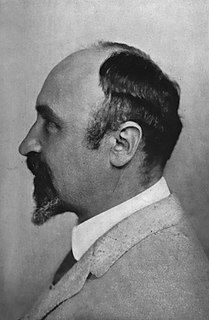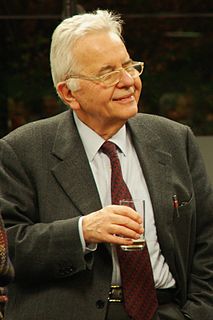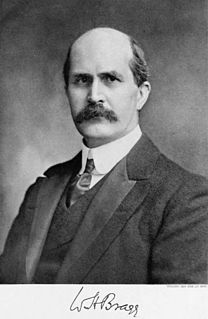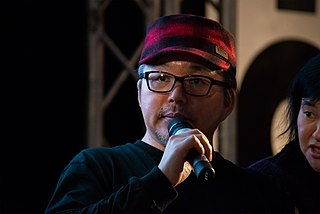A Quote by Leo Baekeland
Knowledge is like a knife. In the hands of a well-balanced adult it is an instrument for good of inestimable value; but in the hands of a child, an idiot, a criminal, a drunkard or an insane man, it may cause havoc, misery, suffering and crime. Science and religion have this in common, that their noble aims, their power for good, have often, with wrong men, deteriorated into a boomerang to the human race.
Related Quotes
Science merely amplifies the capabilities of human beings. Science gives us the ability to do ill and to do good more than we had, and to question science in this respect is like questioning whether people ought to have two hands or just one, because with two hands they could do more evil than they can with just one.
I regard monotheism as the greatest disaster ever to befall the human race. I see no good in Judaism, Christianity, or Islam - good people, yes, but any religion based on a single, well, frenzied and virulent god, is not as useful to the human race as, say, Confucianism, which is not a religion but an ethical and educational system.
No man, however benevolent, liberal, and wise, can use a large fortune so that it will do half as much good in the world as it would if it were divided into moderate sums and in the hands of workmen who had earned it by industry and frugality. The piling up of estates often does great and conspicuous good.... But no man does with accumulated wealth so much good as the same amount would do in many hands.
From religion comes a man's purpose; from science, his power to achieve it. Sometimes people ask if religion and science are not opposed to one another. They are: in the sense that the thumb and fingers of my hands are opposed to one another. It is an opposition by means of which anything can be grasped.
Liberty, next to religion has been the motive of good deeds and the common pretext of crime, from the sowing of the seed at Athens, 2,460 years ago, until the ripened harvest was gathered by men of our race. It is the delicate fruit of a mature civilization; and scarcely a century has passed since nations, that knew the meaning of the term, resolved to be free. In every age its progress has been beset by its natural enemies, by ignorance and superstition, by lust of conquest and by love of ease, by the strong man's craving for power, and the poor man's craving for food.
Science, in all its greatness, is still subject to human creativity. It starts the first moment a child tries to reach up and grab at the clouds. Soon, the child learns that his own hands cannot reach the sky, but his hands are not the limit of his potential. For the human brain observes, considers, understands, and adapts. Locked within the mind is infinite possibility.
Religion and science, for example, are often though to be opponents, but as I have shown, the insights of ancient religions and of modern science are both needed to reach a full understanding of human nature and the conditions of human satisfaction. The ancients may have known little about biology, chemistry, physics, but many were good psychologists.
That man is good who does good to others; if he suffers on account of the good he does, he is very good; if he suffers at the hands of those to whom he has done good, then his goodness is so great that it could be enhanced only by greater sufferings; and if he should die at their hands, his virtue can go no further: it is heroic, it is perfect.
I am ashamed of some christians because they have so much dependence on Parliment and the law of the land. Much good may Parliment ever do to true religion except by mistake! As to getting the law of the land to touch our religion, we earnestly cry, `Hands off! Leave us alone.' Your Sunday bills and all other forms of the act-of-Parliment religion seem to me to be all wrong. Give us a fair field and no favor, and our faith has no cause to fear. Christ wants no help from Caesar.
I love a man who knows how to walk. I do like a gentleman, a man who opens the door and a man who walks on the proper side of the street with you. There’s something safe about it; he’s protecting you. That’s a really nice quality. You don’t see it as often anymore. I pay attention to those things. I know it sounds silly, but I love that. I’m fortunate to say that I have a good guy. Oh, and he has to have great hands. There’s a lot I find sexy in a man, but strong, manly hands are very important.
Our minds tell us, and history confirms, that the great threat to freedom is the concentration of power. Government is necessary to preserve our freedom, it is an instrument through which we can exercise our freedom; yet by concentrating power in political hands, it is also a threat to freedom. Even though the men who wield this power initially be of good will and even though they be not corrupted by the power they exercise, the power will both attract and form men of a different stamp.





































